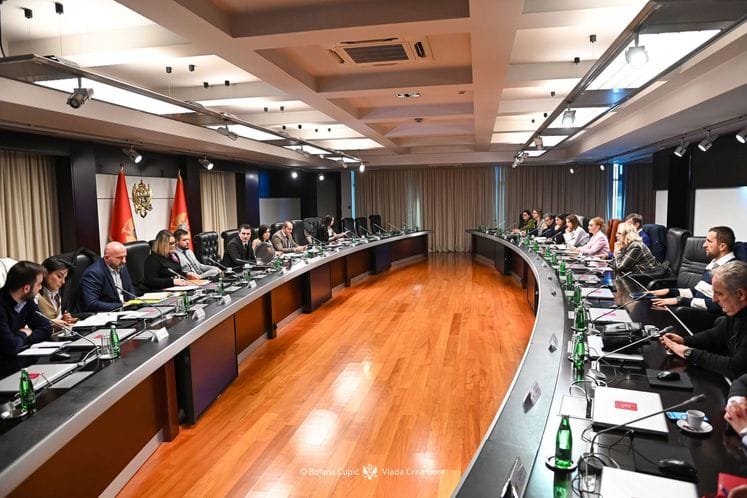- Government of Montenegro
Constitutive session of the Coordination body for ...
Constitutive session of the Coordination body for harmonization and monitoring of inspection oversight

The constitutive session of the Coordination body for harmonization and monitoring of inspection oversight was held today, chaired by Deputy Prime Minister for Infrastructure and Regional Development Milun Zogović, who also serves as the President of the Coordination body.
The session addressed several key topics, including the formal establishment of the Coordination Body, initiating its official operations, exchanging views on critical priorities and challenges in the field of inspection oversight, and reviewing the proposed Rules of Procedure. These rules provide a clear framework for the body's operations, decision-making processes, and the scheduling of meetings.
The primary tasks of the Coordination body, as outlined by law, include harmonizing and monitoring inspection oversight, coordinating the work of all inspection authorities and legal entities performing inspections under legal mandates. The body ensures alignment of work programmes across inspection authorities, proposes training programmes for inspectors, issues recommendations, guidelines, and opinions on inspection organization and planning, and conducts monitoring and evaluation of inspections through the review of reports from inspection authorities and legal entities performing oversight under the Law on Inspection Oversight.
President Milun Zogović emphasized that the Coordination body may establish temporary working groups with clear objectives and tasks to enhance the efficiency and effectiveness of its operations. These groups will serve as a crucial tool for proactive prevention and early detection of corrupt activities and other offenses with elements of corruption, which remain one of the most pressing issues in modern society.
Anti-corruption strategies can be effective, among other things, when robust risk analysis methodologies are established for inspection oversight. This enables proactive measures in preventing and early detection of corruption and related offenses, aiming to dismantle informal social norms that suggest the acceptability of corruption in daily life and prevent the exploitation of the legal framework.
The fight against corruption is a top priority for the Coordination body for harmonization and monitoring of inspection oversight, as well as for all inspection services. Combating economic activities beyond state control must also rank high on the agenda, through concrete measures to ensure fair competition, suppress the shadow economy, and raise awareness among the general and professional public about the causes and consequences of illegal business practices and trade. Once full coordination is established, I expect significant progress in this area, concluded Zogović.
